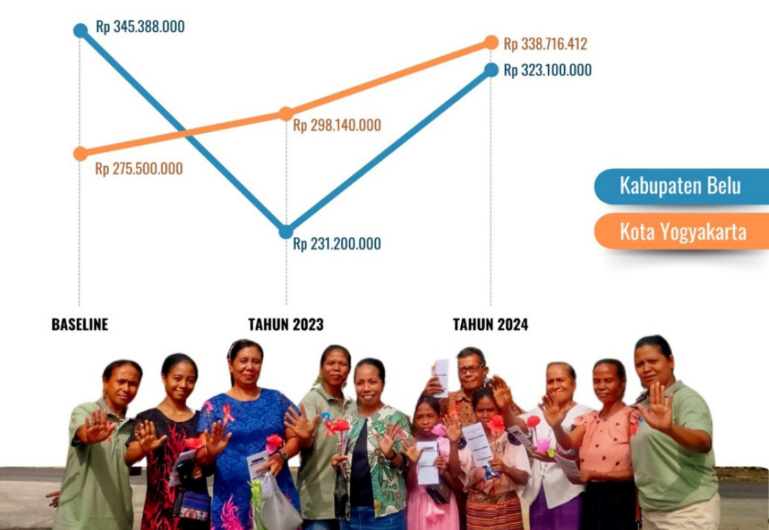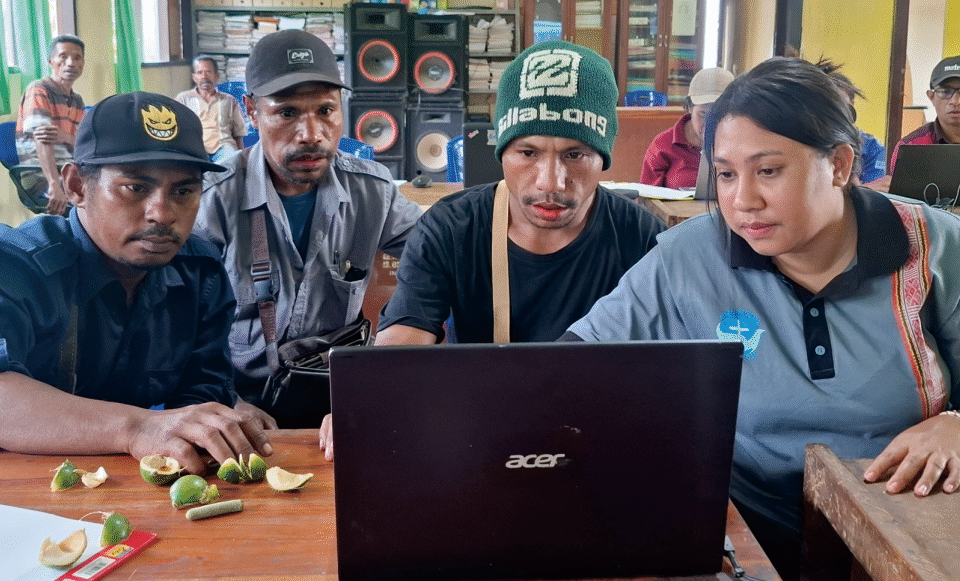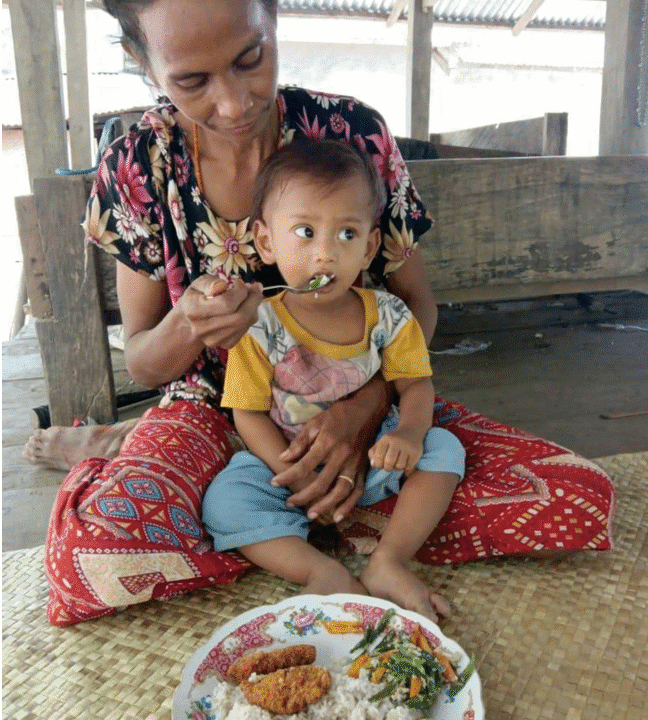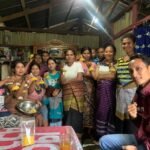
The Light of Bonibais Herbal House
April 29, 2025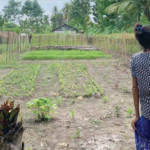
Planting Vegetables, Supporting Nutrition
May 2, 2025Capacity Building Towards Empowered Transwomen
Kebaya Foundation is an organisation that places a special focus on supporting transwomen. Efforts to promote internal empowerment are ongoing. Several strategies for organisational development include capacity-building activities for both administrators and members. CD Bethesda YAKKUM and Kebaya Foundation collaborate to deliver various capacity-building initiatives aimed at empowering transwomen in Yogyakarta. These activities range from mentoring and coaching to advocacy.
CD Bethesda YAKKUM, together with the Kebaya Foundation, collaborated to carry out several activities, including supporting policy advocacy, technical assistance for program and organisational management, and support for activities in HIV and AIDS control. Some technical assistance was carried out, including preparing the Strategic Plan, capacity building related to organisational management, and skills training for administrators and clients living in the Kebaya Foundation shelter. Through technical assistance, it is hoped that the Kebaya Foundation can optimally implement programmes and activities.
Kebaya Yogyakarta Foundation is a non-profit organisation established in 2006 that focuses on HIV and AIDS issues, provides care and support for people living with HIV (PLHIV) both in shelters and in the broader community, and engages in advocacy and empowerment of transwomen. To date, Kebaya Foundation has supported 365 transwomen across Yogyakarta. As one of the institutions involved in traditional health and local food processing, CD Bethesda YAKKUM has provided substantial capacity-building support to the Kebaya Foundation through several activities, including:
Herbal Oil Processing Coaching

Practice of Making Herbal Oil by Transwomen of Kebaya Foundation
The coaching of massage oil processing was held on 16 November 2022 at the Kebaya Foundation Secretariat. Twelve administrators and residents of the Kebaya Foundation shelter participated in the session, which was facilitated by Pungkas Widiasmoro from CD Bethesda YAKKUM. The purpose of the coaching was to enhance participants' knowledge and understanding of massage oil's benefits in improving the health conditions of PLHIV and to increase their knowledge and skills in producing massage oil.
Before starting the practice of making massage oil, the facilitator introduces the ingredients that are usually used such as ginger, aromatic ginger, calamus, nutmeg, sambung otot, kayu urip (pencil cactus), some herbal leaves, oils, menthol, and also chamfer. Making herbal massage oil took approximately 3 hours because it was waiting for the heated oil to cool down. After finishing the practice, the results are put in 60ml bottles, and one litre of oil can, on average, become 13 bottles.
Traditional Massage Coaching
Indonesian traditional massage is a method carried out for generations using the ritual traditions of the Indonesian people. The massage process involves massaging and kneading the surface of the human body, and the aim is to make the body fit and overcome health problems

Traditional Massage Coaching for Kebaya Foundation
Sixteen administrators and clients attended the traditional massage coaching session held for the Kebaya Foundation on 14 March 2023. The materials presented during the session included the history, meaning, benefits, and philosophy of traditional massage; basic principles of traditional medicine; general anatomy, muscles and movements; methods for assessing conditions; traditional massage techniques; service guidelines for traditional massage; and relaxation massage procedures.
The participants understood that traditional massage is closely related to health improvement and can stimulate various body parts, including the feet, back, neck, and head. The facilitator emphasised that participants should actively practise the massage techniques they had learned, as massage cannot be mastered through reading alone—it requires extensive hands-on experience. Massage is not merely a matter of theory but of accumulated practice or "flying hours" in performing massage.
Local Food Processing Coaching
Nutritional intake for people living with HIV (PLHIV) can make use of the potential of local food ingredients available in each region. Indonesia has a wide variety of foods that support a nutritious and balanced diet. However, the nutritional value of these local foods is not widely known to the general public. Local food ingredients offer nutritional benefits not inferior to wheat and rice and have certain advantages—such as higher fibre content—that wheat and rice often lack.

Efforts to improve the nutrition of PLHIV and clients residing in shelters are being made by maximising local food processing skills. This activity was held on 5 September 2023 at the Kebaya Foundation Secretariat. The local food processing coaching for Kebaya Foundation was to enhance participants' knowledge and understanding of the variety and nutritional content of local food ingredients and to equip them with the skills to create a range of local food-based dishes to improve the nutrition of PLHIV.
Rosalia Mahanani, the facilitator, began the coaching session with the topic 'Local Food Processing to Improve Nutrition for PLHIV.' The presentation included information on food ingredients that can be processed, the nutritional content of each local ingredient, and the health benefits they offer. Following the presentation, participants practised making rolade, sempol, dimsum, and crepes. The local food ingredient used in the preparation was mocaf flour (modified cassava flour), which served as a substitute for wheat flour.
The output of this activity is an increase in participants' knowledge and understanding of the variety and nutritional content of local food ingredients, as well as their knowledge and skills in making a variety of foods based on local food ingredients to improve the nutrition of PLHIV.
In addition to capacity building through several coaching, CD Bethesda YAKKUM also assisted in reviewing the PLHIV Shelter owned by the Kebaya Foundation. The shelter, which Yayasan Kebaya manages, currently accommodates 11 PLHIV who do not have families or need a place to stay after treatment at the hospital. The cost of food for clients living in the Kebaya Yogyakarta Foundation shelter comes from the Social Service of Yogyakarta Special Region.
Yayasan Kebaya Yogyakarta has a Standard Operating Procedure (SOP) as the basis for running the shelter program. In order to achieve the mission of improving the quality of services for PLHIV in the shelter, a review of the SOP of the Kebaya Foundation Shelter was held. This review involved the management and staff of Yayasan Kebaya, KPA DIY, and facilitators from PKBI Yogyakarta. This activity was carried out to see the progress of implementation, challenges faced and recommendations for possible revisions to the SOP.
The review resulted in the revised SOP for ODHIV Shelter Management. The revised SOP includes definitions and principles, requirements for shelter residents, length of stay in the shelter, and health service referrals that can be contacted. The SOP can be adjusted to the capabilities of human resources (HR) in the Kebaya Foundation shelter. It does not have to impose SOPs used in other institutions, but must be adjusted to the conditions and abilities of the people who live in it so that they are not burdened by one another.
The mentoring program carried out in the form of training, and technical assistance for the management and residents of the Kebaya Foundation shelter is expected to support the achievement of the mission to increase capacity in organisational management, as well as to improve the socio-economy of the transgender community in Yogyakarta.
(Novia Keren Cahyanti)


